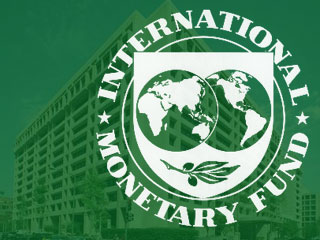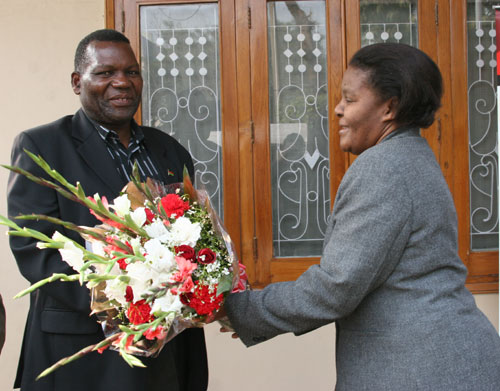Christine Lagarde, head of the International Monetary Fund, arrived in Malawi on 5 January 2012 to assure support for the government’s economic recovery programme. The impoverished country is deeply dependent on foreign aid payments, and has suffered particularly from the suspension of aid payments due to political uncertainties in the country.
In June 2012, the International Monetary Fund had given the country a three-year 157 Million US$ loan package to implement economic reforms, which are necessary to stimulate the country’s sluggish economy. International donors pulled back after the IMF suspended another Extended Credit Facility in 2011, and insecurity of social and political rights also deterred potential financial backers. While the economy was well above the sub-Saharan average for a long period, it decreased to 6.7% in 2010, and fell further to 5.8% in the following year. The growth perspective for 2013 remains low.
Current President Joyce Banda, who took over the official duties after previous controversial President Mutharika had died in April 2012, announced a national development plan, identifying nine key priority areas in which the country shall focus to promote its weak economy. The resumption of support by the International Monetary Fund will certainly help to implement the planned measures, lure back donors who provide up to 40% of the country’s development budget, and pay salaries for its nearly 170 000 civil servants.
Under previous president Mutharika, the country’s relationship to the IMF deteriorated after he constantly refused to devalue the Malawi’s currency, as the IMF had advised, to attract more foreign currencies. The new government finally devaluated the Malawian Kwacha in May 2012 by 33%, making imported goods much more expensive for the country’s people. The poor – 39% of the 13 Million citizens, living on less than one dollar a day – suffered much from the devaluation. In this way, the International Monetary Fund, being mainly responsible for the fiscal decision, has therefore committed itself to the economic destiny of the Central African country.
Malawi has to tackle several economic problems. The country’s young population works predominantly in the agricultural sector, and the minimum wage is less than one US$. Even though official statistics only claim a youth unemployment of 2.7%, unemployment is a serious problem in Malawi. People who work one hour per day are counted as employed. Because of the low wages, many of those who have employment do not earn enough to escape from poverty. The future outlook is negative, especially considering that the growing population will contribute to the deteriorating job market.
Malnutrition is highly prevalent in the country, despite the agricultural sector being their most developed. Fertilizer subsidies have significantly boosted the output, but extreme climate conditions such as heat and floods perpetually destroy the lifeblood pf thousands of people.
The recent involvement of the International Monetary Fund, together with the reasonable government under current president Banda, represents a glimmer of hope for the future of the country. Unlike many other Central African countries, Malawi cannot rely on precious resources to boost its economy, as they are almost non-existent in the country. It therefore needs a highly competent economic leadership that is able to recognize the country’s competitive strengths, and then promote them. It remains to be seen if the current government and its national development program are able to form the foundation for the necessary growth.


.jpeg&w=60&q=100&h=60)










